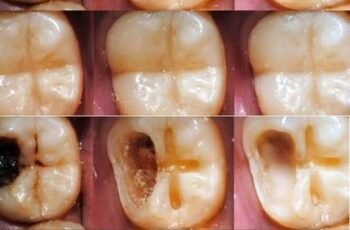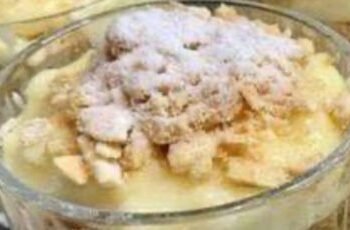
How to Naturally Repair a Cavity: Keep These Tips in Mind to Avoid Visiting the Dentist
Cavities — also known as dental caries — are among the most common health problems worldwide. While most people think a visit to the dentist is the only way to treat a cavity, some early-stage cavities can actually be repaired naturally with the right lifestyle, diet, and oral care habits.
Although natural healing is not a substitute for professional dental care in advanced cases, small cavities or tooth decay in the early demineralization stage may be reversed. Let’s explore how to repair a cavity naturally and protect your smile — all without a painful drill.
What Causes Cavities?
Cavities form when bacteria in your mouth produce acid that erodes the enamel — the hard outer layer of your teeth. This usually happens due to:
- Poor oral hygiene
- A high-sugar or acidic diet
- Lack of minerals (like calcium, magnesium, and phosphorus)
- Dry mouth or low saliva production
- Plaque and tartar buildup
Once the enamel is worn down, bacteria can reach the dentin and pulp, causing pain and infection. At this point, professional treatment is usually necessary. However, if the cavity is still in its early stage, you can take steps to stop and even reverse it.
Can a Cavity Be Reversed Naturally?
Yes — but only if it’s in the early stage. This is called enamel demineralization. At this point, the enamel has started to lose minerals, but the damage hasn’t reached the dentin yet.
With the right lifestyle and dental care, your body can remineralize the enamel and heal the tooth.
Natural Ways to Repair a Cavity (Early-Stage Tooth Decay)
Here are science-backed methods to naturally reverse cavities and strengthen your enamel:
1. Cut Sugar from Your Diet
Sugar is cavity fuel. Bacteria in your mouth feed on sugar and produce acid, which eats away your enamel. Reducing or eliminating sugary foods and drinks (especially soda, candy, and pastries) helps prevent further damage and gives your teeth a chance to heal.
Tip: Avoid sipping sugary drinks throughout the day — it creates a constant acid attack on your teeth.
2. Eat a Tooth-Healthy Diet
Focus on nutrient-rich foods that support enamel remineralization:
- Calcium-rich foods: milk, cheese, yogurt, almonds
- Vitamin D sources: sunlight, eggs, cod liver oil
- Magnesium-rich foods: leafy greens, seeds, bananas
- Phosphorus-rich foods: fish, nuts, eggs, whole grains
These minerals work together to repair weakened enamel and prevent cavities from forming.
3. Oil Pulling with Coconut Oil
Oil pulling is an ancient Ayurvedic technique believed to reduce harmful bacteria in the mouth. Swishing a tablespoon of organic coconut oil in your mouth for 10–20 minutes each morning can help:
- Reduce plaque
- Prevent gingivitis
- Minimize cavity-causing bacteria
Spit it out in a trash can (not the sink) and rinse your mouth with warm water afterward.
4. Brush with a Remineralizing Toothpaste
Standard toothpaste helps clean your teeth, but remineralizing toothpaste goes a step further by adding back lost minerals.
Look for toothpaste that includes:
- Hydroxyapatite
- Calcium phosphate
- Xylitol
- Fluoride (if you’re not avoiding it)
These ingredients help rebuild enamel and slow the decay process.
5. Use Natural Remedies Like Clove Oil
Clove oil has natural antibacterial and numbing properties. Applying diluted clove oil to a sensitive tooth can:
- Reduce pain
- Fight harmful bacteria
- Support natural healing
Mix a drop of clove oil with coconut oil and apply it using a cotton swab.
6. Avoid Acidic Foods and Drinks
Acidic foods and drinks like soda, citrus, coffee, and vinegar can erode enamel even faster. If you consume these, rinse your mouth with water afterward and wait 30 minutes before brushing to avoid brushing softened enamel.
7. Stay Hydrated and Boost Saliva Flow
Saliva plays a major role in neutralizing acids and delivering minerals to your teeth. To boost saliva:
- Drink plenty of water
- Chew sugar-free gum with xylitol
- Avoid smoking and alcohol, which dry the mouth
8. Practice Perfect Oral Hygiene
This may seem obvious, but brushing and flossing the right way is essential to reverse cavities.
Daily checklist:
- Brush twice a day with a soft-bristled brush
- Use a mineral-rich or fluoride toothpaste
- Floss daily to remove plaque between teeth
- Consider using a natural mouthwash like salt water or hydrogen peroxide (diluted)
When to See a Dentist
If you experience:
- Persistent pain
- Sensitivity to heat or cold
- Visible holes or dark spots
- Swelling or pus near the gumline
… it’s time to visit the dentist immediately. Advanced cavities can’t be reversed naturally and may require fillings, root canals, or crowns.
Final Thoughts
Preventing and repairing cavities naturally is absolutely possible — but only in the early stages. By following these daily habits, you can strengthen your teeth, support your body’s natural healing process, and potentially avoid painful and costly dental treatments.
Your mouth is a reflection of your overall health. Keep it clean, nourished, and mineral-rich — and your smile will thank you!
SEO Keywords to Include:
- how to reverse a cavity naturally
- natural ways to heal cavities
- home remedies for tooth decay
- early cavity treatment without dentist
- remineralize teeth naturally
- clove oil for cavities
- oil pulling for dental health
Would you like me to turn this into a downloadable PDF, infographic, or WordPress blog post format for your website?

